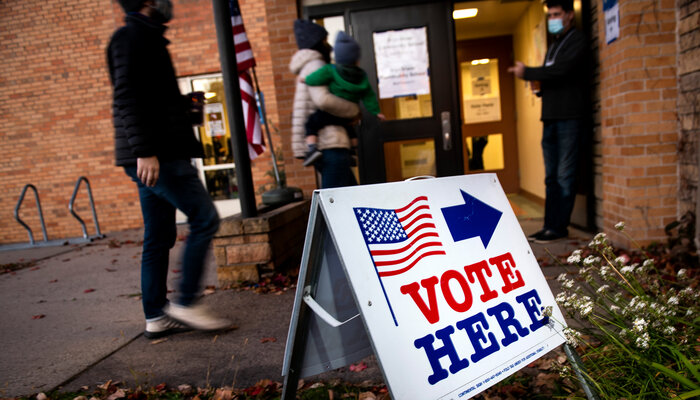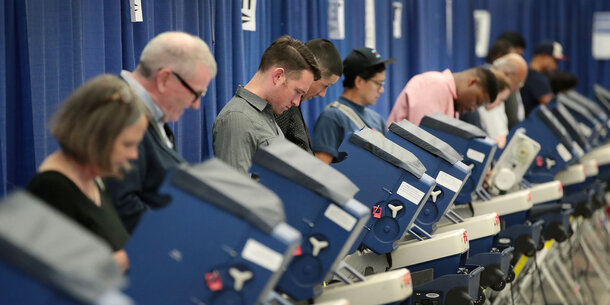You’re reading The Briefing, Michael Waldman’s weekly newsletter. Click here to receive it every week in your inbox.
There is a trial underway in Texas that has big implications for the future of voting rights.
The case is LUPE v. State of Texas. It deals with the big, comprehensive voter suppression law passed by the Texas legislature several years back: Senate Bill 1. It intentionally discriminates against Black and Latino voters. It imposes new burdens on mail voting, makes it more difficult for voters who have limited English proficiency or disabilities to receive assistance with voting, takes aim at community and faith-based groups by criminalizing nonpartisan voter turnout activities as “vote harvesting,” and puts poll workers at risk of criminal prosecution if they act to stop partisan poll watchers from harassing voters.
We at the Brennan Center, working with the Mexican American Legal Defense and Educational Fund (MALDEF), are among the attorneys representing voters and officials challenging the scheme.
During the trial’s first week, there was a parade of witnesses testifying to the law’s real-world effects on voters and election officials. A former county clerk said of one provision, “I thought it criminalized a very innocent process that helped often our most vulnerable voters.” A longtime poll worker said of the law, “As long as it’s in effect, I’ll never serve again.” And another testified that he would hesitate to recommend that anyone serve because of the risk of prosecution.
S.B. 1’s rules concerning poll watchers create a culture of fear, confusion, and potential chaos at polling places. One county election administrator told the court, “We had tons of complaints that poll watchers were intrusive, and voters felt intimidated because the poll watcher would come and stand behind them as they are voting. . . . It was disturbing.” Another administrator observed that election workers were afraid of being prosecuted for performing their duties of maintaining order at the polling place and protecting voters from intimidation and violence.
In one exchange, a county clerk described the problem of voter fraud as a “unicorn,” because fraud affects at most “ones and twos out of millions of votes, and in most cases [is] unintentional.”
Showing a shaky grasp of mammalian zoology, a lawyer for the state of Texas replied, “Even though voter fraud is a unicorn, we still have to be vigilant.” The preposterous exchange highlighted the flimsiness of the state’s justifications for voter suppression laws.
In the trial’s first few weeks, the court and the nation have learned what voter suppression is truly about — and it has nothing to do with preventing phantom voter fraud. In enacting S.B. 1, Texas set out to keep certain people from voting, and it’s working. In the first election after the law’s enactment, a single provision of the law caused tens of thousands of mail ballot applications and mail ballots to be discarded, and those rejections disproportionately affected voters of color. The law is a reminder of the United States’ basest impulses. It demonstrates the need for strengthened federal protections of the franchise so that all people can participate in our democracy on equal terms.



